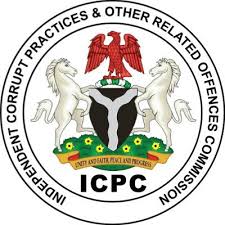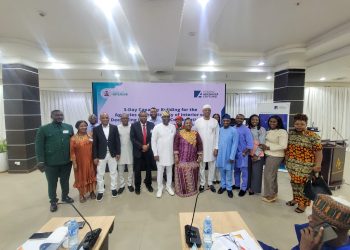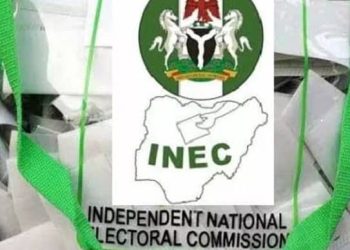By Nkechi Eze
As President Bola Ahmed Tinubu marks two years in office, the Civil Society Legislative Advocacy Centre (CISLAC), the Nigerian chapter of Transparency International, has released a critical midterm review highlighting both strides and setbacks in governance under his administration. The report offers a nuanced appraisal of economic reforms, security challenges, civil liberties, and institutional performance, urging urgent recalibration to restore public confidence and democratic integrity.
According to an official signed statement by CISLAC’s Executive Director, Comrade Auwal Musa Rafsanjani, the Tinubu administration has pursued bold economic reforms such as the removal of fuel subsidies and the unification of exchange rates. These policies have attracted commendation from international financial bodies, with foreign reserves now exceeding $37 billion and investor confidence beginning to return. However, Rafsanjani noted that the benefits have not trickled down to the average Nigerian.
“While macroeconomic indicators suggest recovery, millions are contending with inflation above 33 percent, skyrocketing food prices, stagnant wages, and a lack of social protection. The result is widening inequality and growing public frustration,” Rafsanjani stated.
CISLAC also expressed deep concern over the shrinking civic space in Nigeria, citing the government’s repressive response to protests and increasing restrictions on freedom of expression. “Security concerns are being used as a pretext to suppress dissent, signaling a dangerous slide into authoritarianism,” the statement warned.
On security, the review pointed out that despite increased defense spending and the launch of new units like the Forest Security Service, violent attacks, kidnappings, and communal clashes persist in several regions, including Zamfara, Kaduna, Plateau, and the South-East. CISLAC called for a shift toward intelligence-led and community-based security strategies, supported by transparency and inter-agency cooperation.
The Centre acknowledged some anti-corruption initiatives, including the ICPC’s project monitoring and fund recovery efforts. However, it condemned selective enforcement, especially the lack of prosecution in high-profile cases and the tendency of indicted politicians to defect to the ruling party to evade justice.
“This double standard undermines the credibility of the anti-corruption campaign and deepens public cynicism,” CISLAC noted.
In the judiciary, the report recognized improvements in digital court processes and judicial appointments but said the system remains plagued by executive interference, inconsistent rulings, and case backlogs. Rafsanjani stressed that judicial independence must be protected to preserve democratic norms and uphold the rule of law.
Turning to agriculture and food security, CISLAC criticized the limited impact of government interventions, including the 2023 declaration of a food emergency and initiatives like “Earn from the Soil.” Over 31 million Nigerians remain food insecure due to rural insecurity, input diversion, and poor access to finance and infrastructure.
On federal appointments, the Centre raised alarm over the perceived marginalization of key groups, noting that failure to uphold the federal character principle risks national cohesion.
“Appointments must reflect Nigeria’s diversity not just in geography, but in gender, religion, and generational representation,” Rafsanjani asserted.
The midterm assessment also faulted the administration’s efforts in job creation and youth retention, noting that the Student Loans Act is insufficient to address structural unemployment and the worsening “Japa” brain drain phenomenon. CISLAC emphasized that the government must prioritize job creation, industrialization, and educational reform to curb this exodus.
Despite increased funding for social services, CISLAC reported that healthcare and education remain largely inadequate, and infrastructure projects have failed to meet real public needs. Power supply remains erratic, and rural electrification continues to lag.
The report also scrutinized the 10th National Assembly, recognizing some legislative activism, such as the passage of key bills and constitutional amendment efforts. Nonetheless, it noted persistent legislative inefficiencies, internal controversies, and susceptibility to executive influence.
CISLAC cited the suspension of Senator Natasha Akpoti-Uduaghan as a concerning example of how legislative tools may be weaponized against dissent, warning that such actions undermine democratic representation and free speech.
In conclusion, CISLAC stated that while the Tinubu administration has made some notable moves toward economic reform and institutional restructuring, the government’s overall performance remains undercut by inconsistent implementation, widening hardship, authoritarian tendencies, and a disconnect from citizen realities.
The Centre urged the administration to focus on people-centered reforms including raising the minimum wage, enforcing impartial anti-corruption measures, and investing in security, agriculture, infrastructure, and public services to course-correct over the next two years.
“The next half of this administration’s term presents a crucial opportunity for Nigeria to realign its governance priorities,” Rafsanjani said. “Only through strengthened democratic institutions, inclusivity, and transparency can we build a prosperous, unified Nigeria.”
CISLAC called on civil society, the media, and citizens to remain actively engaged in demanding accountability and good governance.















